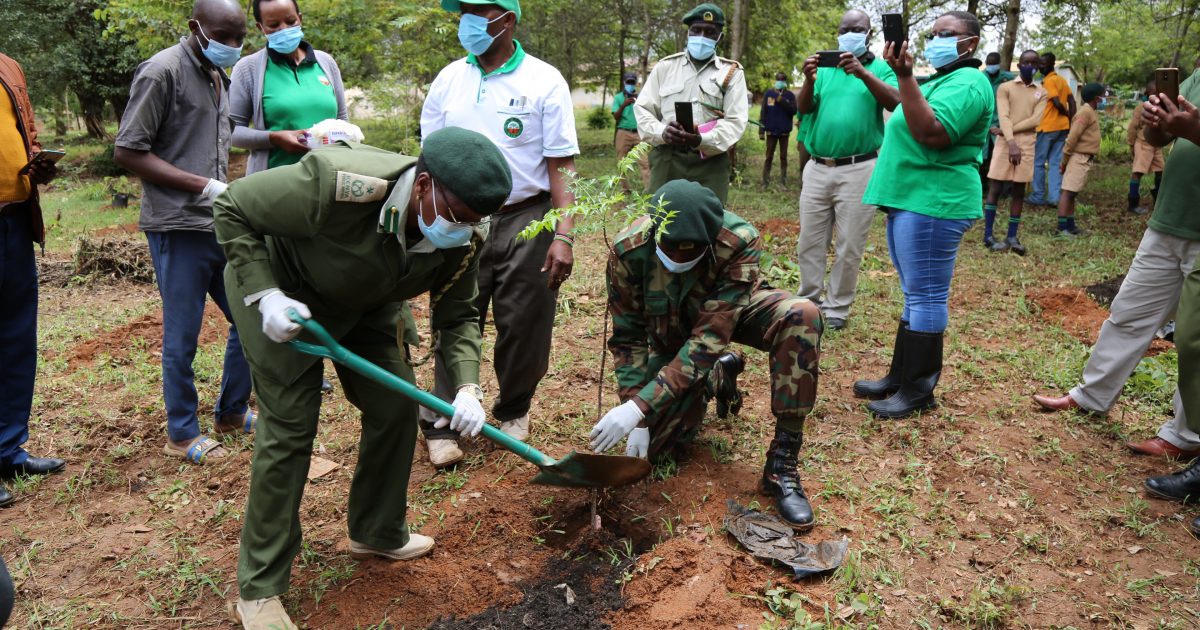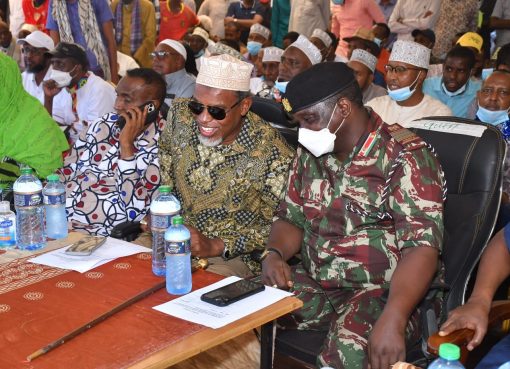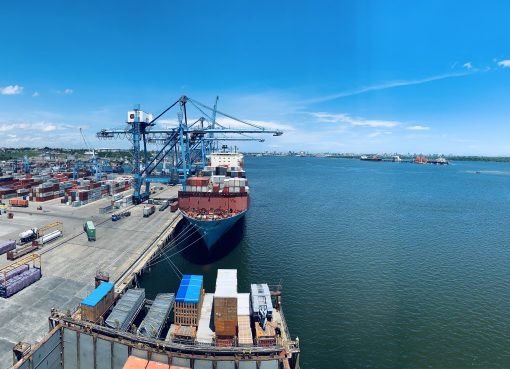Kitui Community-Based Organization ‘We the Trees’ on Tuesday planted 5, 000 tree seedlings in Muthale, Kitui West with an aim of increasing the county’s 7 per cent forest cover to the national goal of 10 per cent.
The CBO’s Chairman Francis Kavisu noted that deforestation and forest degradation impact on livelihoods through reduced biomass energy, soil erosion and siltation and reduced water infiltration in the soil leading to diminishing groundwater quantities.
He recalled that at independence in 1963, Kenya’s forest cover stood at approximately 11 percent and continues to reduce due to human activities.
Kavisu notes that the main drivers of deforestation include conversion to agricultural land in response to demographic pressures, and unsustainable production methods and consumption patterns for charcoal.
“Other drivers include degazetting of forest lands, ineffective institutions and enforcement, corruption, illegal logging and, in the case of private local authority forests and unclear land tenure for forest,” he noted.
Kavisu said that degradation has also occurred in gazetted forests because of decades of illegal logging adding that many trust land forests have been degraded due to demand for charcoal, timber and fuelwood.
He lamented that the deforestation and wildlife habitat destruction are potential signals to the rise of infectious diseases globally such as the coronavirus pandemic.
“As climate change contributes to a surge in disease outbreaks across the world, scientists warn that current rates of environmental degradation and biodiversity loss will lead to more deadly pandemics,” he said.
Scientists warn that the total number of disease outbreaks has more than tripled each decade since the 1980s adding that more than two thirds of the diseases originated in animals and most of those were directly transmitted from wildlife to people.
Kitui County Ecosystem Conservator Joyce Nthuku disclosed that habitat destruction like deforestation and agricultural development on wildland is increasingly forcing disease-carrying wild animals closer to humans, allowing new strains of infectious diseases to thrive.
“When you cut down trees and remove the forest, you eliminate the natural environment of some species. But those species do not just disappear, they move closer to human habitation leading to the spike in infections,” said the Ecosystem Conservator.
Scientists say the coronavirus pandemic is the most recent instance of how human degradation of wildlife habitats is linked to the spread of infectious diseases.
The World Health Organization reports that an animal is the likely source of the 2019 coronavirus (Covid-19), which has infected millions of people worldwide and placed a strain on the global economy.
According WHO, bats are the most probable carrier of the Covid-19 but added that it is possible that the virus was transmitted to humans from another intermediate host, either a domestic or a wild animal.
“Humans and nature are part of one connected system, and nature provides the food and medicine.
Nthuku said that KFS is promoting bamboo trees in the semi-arid Kitui County to help stabilize the soils, boost water sources, restore and repair the riparian lands.
She said bamboo is a core development resource that can help create a wealth of practical solutions while reducing the negative effects that changing climate patterns have on rural communities.
“Bamboo is critical in building climate resilient communities and can help the poor control flooding while protecting the environment, biodiversity and the ecosystem,” she said after leading community forest association members plant over 200 bamboo seedlings in Kyawea Forest.
Additionally, Nthuku said that its ability to grow faster than many hardwoods makes bamboo ideal for absorbing greenhouse gases such as carbon dioxide, compacting desertification and global warming.
By Yobesh Onwong’a





